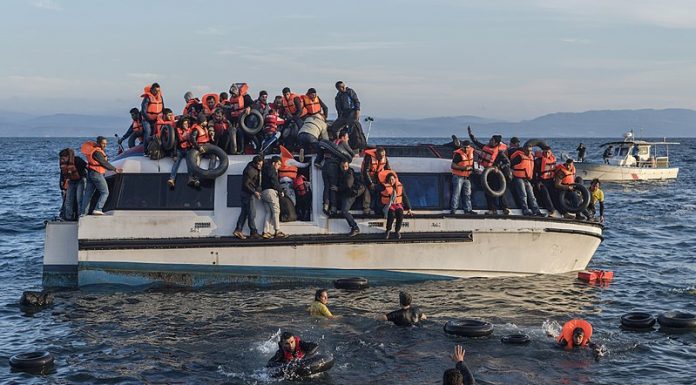
By Samuel Martin, Editor-in-Chief of The Mallard
For the last several years, Dutch politics has largely been defined by the ruthless search for an alternative.
In the 2019 provincial elections, the national conservative Forum for Democracy (FvD) rose to first place. Despite having only started contesting elections two years prior, the think-tank turned populist vanguard rocked both the established parties and anti-establishment rivals.
In the 2023 provincial elections, the agrarian conservative Farmer-Citizens Movement (BBB) replaced the FvD as the new kids on the block and as the most popular party.
That same year, Pieter Omtzigt’s New Social Contract (NSC) was formed in the wake of then Prime Minister Mark Rutte’s doomed and final coalition. Although only a few months old, the NSC almost clinched the podium and entered government with the Party for Freedom (PVV); an alternative that has knocked about the Netherlands’ political landscape for several years, albeit one voters have (at least, up until recently) been reluctant to endorse.
Another such party is the Democrats 66 (D66), albeit for different reasons. While PVV has a very clear and intuitive appeal, D66 has long struggled to justify its existence. The party was founded for a set of very specific goals, none of which were ultimately achieved; at least not in full. The Prime Minister remains indirectly elected, referendums have gone out of fashion, politics remains vulnerable to scandal, and society is fragmenting into enclaves. As a result, D66 has spent decades as a centrist liberal party, advancing ideas that scarcely differ from their more established rivals; the party’s socially liberal credentials aren’t so much markers of distinction but signifiers of a party that dwells well-within the Overton Window.
🇳🇱#Netherlands, general election:
Asked about a government coalition, Rob Jetten stated that a coalition between his social-liberal party D66, the liberal-conservative VVD, the centre-left alliance GL/PvdA, and the christian-democrats of the CDA is a "very logical option".
This… pic.twitter.com/szC0LHtcTC
— World Elects (@ElectsWorld) October 29, 2025
Following last month’s election, it would seem they’ve found one. Placing joint-first with the PVV, D66 achieved its best ever result by capitalising on the electorate’s long-standing and widespread frustration with soaring house prices and rental costs. However, while promises of 10 new cities, more social housing, phasing out mortgage tax relief, and mass renovation of rental homes secured votes at the ballot box – not to mention the prospect of government stability – housing reform is far from the glue that binds the D66. In fact, with the exception of Volt, D66 is the most pro-EU party in the States General.
D66 supports further federalization of the EU, giving the European Parliament full legislative, budgetary, and oversight powers, EU treaty reform and a Constitutional Convention, a single unified and directly European President, a full European cabinet, transnational electoral lists for European elections, abolishing vetoes in favour of qualified majority voting, permanently moving the European Parliament to Brussels, the creation of a European army, and a more punitive European Commission.
The party even supports joint debt borrowing; a policy the Netherlands has strongly opposed since its inception… and for good reason!
New Dutch Central Bank chief warns against eurobonds: "The risk is that it will only lead to higher debt" https://t.co/mZx6eX0iGq
— Pieter Cleppe (@pietercleppe) November 8, 2025
The party’s intense europhilia isn’t an accident. The failure of D66’s domestic reforms forced D66 to reinvent its quest for democratic reform to save itself from irrelevancy. The Maastricht Treaty provided an opportunity for this reinvention. Unlike its social and Christian democratic rivals – both of whom took a more moderate, incremental approach to Europe – D66 was one of the very few parties to explicitly argue for a European constitution early-on; they proposed supranational governance, not merely intergovernmental co-operation.
This isn’t to say D66 never had any federalist objective. Its founding document, Appeal 1966, supported democratising the European Community and the creation of a directly-elected and empowered European Parliament:
“The same objectives will be pursued with the greatest determination at the European level. After all, more and more decisions that previously fell under the authority of the Dutch government are now being made at the European level.”
“The powers of the European Parliament must be expanded to such an extent that it can develop into a fully-fledged parliament. To that end, the introduction of direct elections is an imperative requirement. If this is not fulfilled, no cooperation should be given to the further development of European integration.”
Rather, this is all to say that the “good pupils of [Jean] Monnet” allocated greater weight to European integration, both for strategic and ideological reasons, as domestic success was diminished and supranational European influence expanded. In 1966, D66 was concerned with the democratic deficits of the EU’s predecessors. By 2006, D66 “chooses for a federal Europe”. The preceding year, following the 2005 Dutch referendum, in which the electorate rejected the proposed EU Constitution, the party argued that voters were misinformed and doubled down on its support for shifting power to Brussels.
None of this spells doom for Dutch sovereignty per se. Indeed, the PVV still came joint first; if that’s a bad result for your party, then your party is doing alright. More importantly though, it stands to reason that D66 has primarily benefitted from being the last party standing. The Dutch people are less spoilt for choice and more concerned with making a choice that isn’t spoilt, and as chance would have it, D66 will spearhead the next government as a result.
Just so everyone is clear on this: the party D66, which performed well in this week's Dutch elections, are progressive liberals, not "pragmatic centrists" as some claim.
D66 has voted against virtually every single proposal to limit immigration out of principle over the last… pic.twitter.com/iqVG56KmEd
— PanEuropeanMovement (@EuropeanPan) October 30, 2025
Consequently, eurosceptics must not regard the outcome as a tacit endorsement of more European integration. Instead, it should regard D66’s dogmatic europhilia as the scorpion riding on the back of the frog; on its own, the promise of more integration would’ve proven insufficient for taking power, and thus it must ride atop unremarkable proposals, crafted in response to more widespread concerns.
However, this works both ways. While the Dutch electorate might not find the prospect of more integration especially appealing, they don’t find it off-putting either; least of all when faced with the unbecoming alternative of a volatile, lame-duck government.
If centre-right and hard-right parties, soft and hard eurosceptics, cannot govern together – even when it’s clear that neither are going anywhere anytime soon – then the scorpion of European federalism will not only continue to ride its way into government, it will begin to inject its poison into legislation as well. As D66 has shown already… it’s in their nature!
Netherlands, Preliminary final election result:
National parliament election
D66-RE: 16.9% (+10.6)
PVV-PfE: 16.7% (-6.8)
VVD-RE: 14.2% (-1.0)
GL/PvdA-G/EFA|S&D: 12.8% (-3.0)
CDA-EPP: 11.8% (+8.5)
JA21~ECR: 5.9% (+5.2)
FvD-ESN: 4.5% (+2.3)
BBB-EPP: 2.6% (-2.1)
DENK-*: 2.4%… pic.twitter.com/1YmhEzMSkt— Europe Elects (@EuropeElects) November 3, 2025
Disclaimer: www.BrusselsReport.eu will under no circumstance be held legally responsible or liable for the content of any article appearing on the website, as only the author of an article is legally responsible for that, also in accordance with the terms of use.












